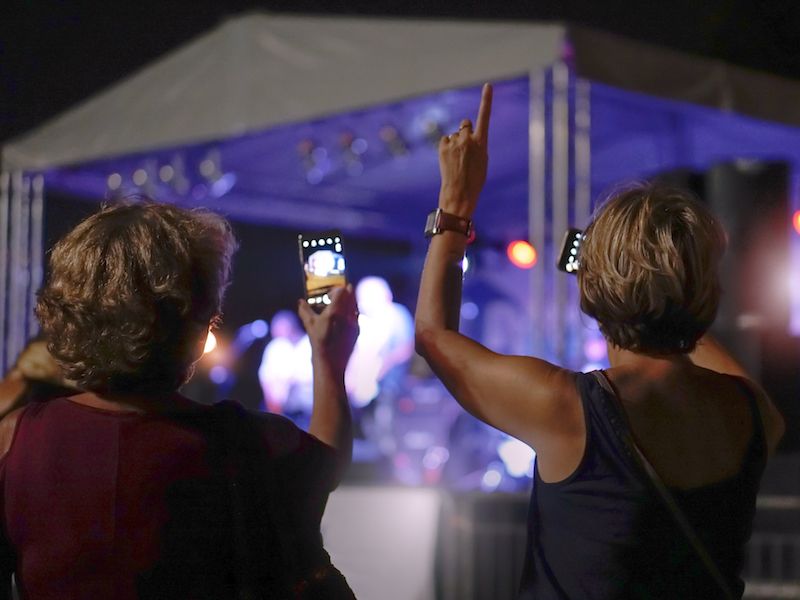
Summer is finally here, and it’s time for all that fun we’ve been getting excited about: swimming in the pool, going to the beach, and a few activities that may harm your ears. You might find yourself in external situations or subjected to other loud sounds this summer that are hidden risks to your ears. Any sounds above 80 decibels can harm your ears, while swimming in pools or other bodies of water can cause lasting hearing loss. You need to take preventative measures and be aware of your environment in order to keep your hearing safe this summer. Keep reading to identify the summer’s six hidden risks to your hearing.
At Concerts, Use Hearing Protection
Whether you’re at an indoor venue or an outside concert venue you still need to wear ear protection during concerts. Live music can reach over 90 decibels, even at outside shows, which is inside of the danger zone of hearing loss. So whether you’re attending an outside or inside shows, it’s a practical idea to wear earplugs. Earplugs dampen the sound while still enabling you to hear and enjoy the music. If you’re taking young children to a concert, consider buying them a heavy duty pair of earmuffs since their ears are much more delicate than those of adults.
It’s Not Just Loud at Fireworks
Honestly, there are a lot of reasons to avoid fireworks in the summer. It’s not only the 4th of July shows that are professional that can injure your hearing, we mean the backyard fireworks which every summer cause many of injuries. Along with causing hand injuries, blindness, and house fires, backyard fireworks can also result in significant damage to your ears since they are known to reach decibel levels of 155. This year, on the 4th of July, appreciate the show from a little further away and leave the fireworks to the professionals.
Lawnmowers Can Cause Loss of Hearing
If you care about your lawn, mower, edger, and trimer are your best friends. But the muffled feeling in your ears is a sign that your ears have taken damage. That’s because the constant noise from your lawn tools have a slow and steady impact on your hearing. If you’ve ever observed lawn care pro’s, you probably have seen them utilizing ear protection, next time you do yard work with loud power equipment, you need to take a cue from them and wear earmuffs or earplugs.
Pools And Beaches, What You Should do to Protect Your Ears
Millions of people suffer from swimmer’s ear every summer, which happens when bacteria-laden water becomes stuck inside your ear canal. Painful earaches and swelling are the result when the bacteria infects the ear. It’s not exclusively lakes and rivers that hold these bacteria, they can also be found in hot tubs and pools if they are not cleaned and treated thoroughly. No permanent injury should happen if you get your hearing examined by a hearing specialist. To protect against swimmer’s ear, though, you will want to wear specialized swimming earplugs in the pool and get your pool water analyzed to make sure the chemical balance is safe.
Water Sports And Boats
If you love the water, summertime is beach and boating time for you. But, jet ski and boat engines can be loud,we’re talking over 100 decibels. Sustained subjection to that much noise for about 15 minutes can lead to permanent hearing damage. Once more, it’s probably in your best interests to wear a pair of throw away, foam earplugs when you’re out on the water to make sure you don’t unwittingly injure your ears.
Car Races Can Injure Your Ears
It doesn’t matter what kind of auto racing you like, motorcycle, midget, Formula 1, drag racing or stock cars. All of them can cause a huge challenge for your hearing if you go to race after race this summer season. 120 dB is well within the danger zone for hearing damage and a number of races go way above this. Earplugs are your best bet at these races, while your kids should definitely use the earmuffs which were mentioned earlier. Because you might not get to appreciate the sounds of any races in the future if you don’t.
